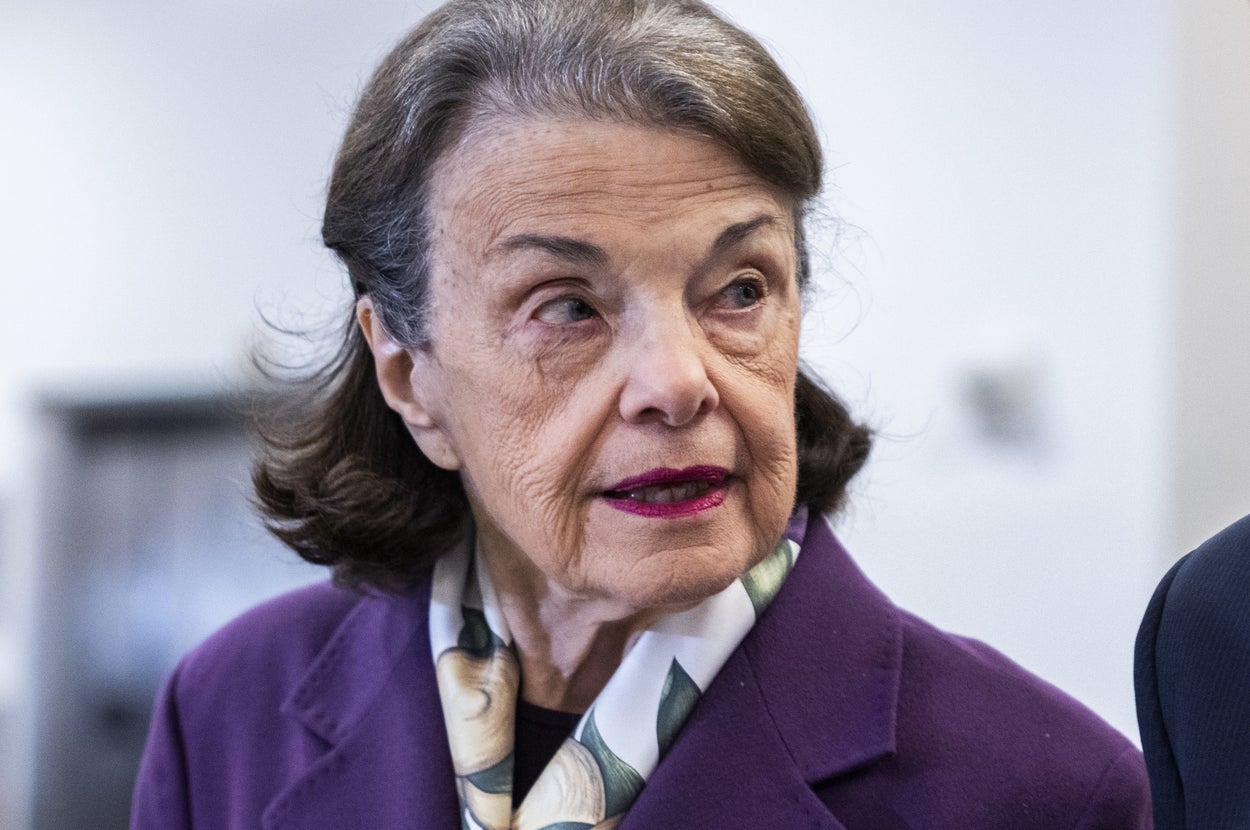Amid mounting calls for her resignation following a distinguished three-decade tenure, Senator Dianne Feinstein, a staple of California politics, revealed her decision on Thursday to temporarily step down from a crucial Senate committee, citing ongoing health challenges. At 89, Feinstein holds the record as the oldest member in Congress, and has been absent from the Senate since February due to a shingles diagnosis, during which she missed 58 crucial votes.
The news emerged when Feinstein’s spokesperson communicated to the San Francisco Chronicle that the senator has been recuperating at home, managing her duties remotely while battling the illness. Feinstein’s health scenario poses not just a personal medical hurdle but also a procedural bottleneck at a critical juncture for the Senate, which is reconvening after a two-week recess.
The composition of power in Washington shifted slightly after the last midterm elections when the Democrats narrowly lost control of the House of Representatives to the Republicans, heightening the pressure on the Biden administration. Recognizing the fragile majority in the Senate, there is a palpable urgency from President Joe Biden and his team to push through as many federal judge appointments as possible. These judicial nominees are critical for ensuring that the judiciary reflects current administrative priorities and interpretations of federal law.
Feinstein’s role in this judicial appointment process is tied to her membership in the Judiciary Committee, a key body that has not voted on any new nominees since February 16. With Senate rules stipulating that a tied vote in committee stalls a nominee’s progression to a full Senate vote, Feinstein’s absence critically impacts the Democrats’ ability to move forward with their judicial agenda.
Senator Dick Durbin of Illinois, who took over as chair of the Judiciary Committee after Feinstein stepped back due to previous criticisms, expressed his concerns to Politico about the stalled progress. He emphasized the eager anticipation for Feinstein’s return, which would allow the committee to resume its function of confirming judicial nominees.
Feinstein, in a statement released late Wednesday, shared her intentions of returning to work by the end of March. However, she noted that “continued complications” have delayed her recovery. “I intend to return as soon as possible once my medical team advises that it’s safe for me to travel,” she mentioned. Despite her physical absence from the Senate, Feinstein affirmed her commitment to her constituents and her senatorial duties, “In the meantime, I remain committed to the job and will continue to work from home in San Francisco.”
Acknowledging the significant impact of her absence on the functionality of her colleagues and the progress of legislative affairs, Feinstein has approached Senate Majority Leader Chuck Schumer with a request to temporarily replace her in the committee. This move is aimed at ensuring the continuity of work and preventing any hindrance to the legislative process, particularly the confirmation of judicial nominees which is crucial under the current political climate.
Feinstein’s career has been marked by numerous accomplishments and a steadfast dedication to her role as a public servant. First elected to the Senate in 1992, she has been a pioneering figure, involved in many key legislative battles and maintaining a strong advocacy for issues ranging from gun control to environmental protection.
However, her continued tenure has not been without controversy, particularly as calls for generational change within the Democratic Party grow louder. The complexity of her current health situation and its impact on her ability to fulfill her senatorial duties adds another layer of challenge in her illustrious political career.
In stepping back from her committee responsibilities temporarily, Feinstein is demonstrating an awareness of the broader implications of her health on the legislative process and the functioning of government. Her decision, though arising from unfortunate circumstances, shows a readiness to prioritize the effectiveness of legislative operations over personal political career considerations.
As the Senate gears up to tackle a backlog of judicial appointments and other critical legislative items, the Democratic leadership is also faced with the delicate task of managing the dynamics within their own party. The situation highlights the intricate balance between individual capacity and collective responsibility in political office, a balance crucial for maintaining the functionality of democratic institutions.
Feinstein’s health and the decisions emerging from it not only have personal consequences but are emblematic of broader themes in governance, accountability, and the continuous evolution of political entities to meet contemporary challenges. As the Senate moves forward, the spotlight will remain on how adaptably and efficiently the vacuum left by Feinstein’s temporary departure is managed, and how swiftly and effectively the Biden administration can continue on its judicial appointment agenda.









